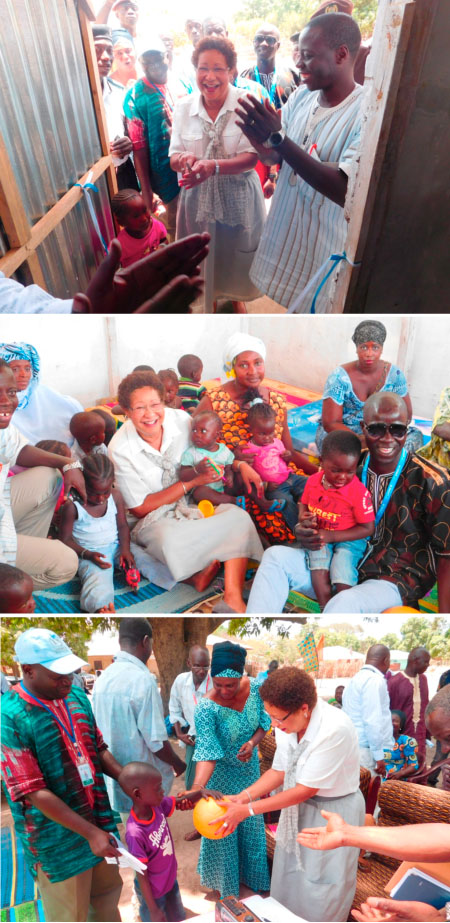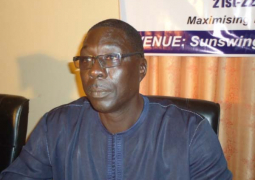
The four centres added to the two previously inaugurated by the Ambassador in April. They are built by the Gambia Food and Nutrition Association (GAFNA) through a US$25,000 grant from the Julia Taft Refugee Fund’s (JTRF).The U.S. Embassy awarded the grant to GAFNA last year.
The Julia Taft Refugee Fund is meant to fill critical funding gaps in a country’s major refugee programs.From 2012 to 2015, the Fund has contributed $100,000 to support refugees from the Casamance.The Fund provides vulnerable women and children with livelihood improvement projects so they can rebuild their lives.
In all the events, the Ambassador was joined by senior local government officials, including the Deputy Governor of West Coast Region, and Chairman of the Brikama Area Council (BAC).
In her remarks, the Ambassador said early childhood development is a top priority for both the U.S. Government and Embassy Banjul, and said the past three weeks saw her Mission make considerable strides toward improving childhood facilities as an integration mechanism for refugee families and their children.
The Ambassador said the Julia Taft Fund has supported livelihood improvement projects, rebuilt lives through projects that build community resilience, and has restored smiles to the faces of otherwise deprived, excluded, and vulnerable children.In the current funding year, she said the Mission is committed to improving early childhood welfare for refugees and host family children.
“Investing in early childhood does not just benefit children, it benefits societies.We can measure the returns in healthier, better-educated children, a stronger workforce, and a more prosperous and peaceful future.It is one of the most important investments we can make, with some of the highest returns.The international community is beginning to act on this new understanding.For the first time, the global development agenda includes a target for early childhood development.The Sustainable Development Goals, which follow the Millennium Development Goals, recognize that early childhood development can help drive the transformation we hope to achieve over the next 15 years.This is a pivotal time for all of us,” the Ambassador remarked.
She called for increased understanding and investment into early childhood development and education.She added, “We need to target our investments and interventions to reach the children at greatest risk of being left behind.We must reach the children in the poorest communities and regions.We must reach the children from refugee families and other disadvantaged groups.And, we must reach children with disabilities.To ensure that we do this, we need to build public awareness about the importance of early childhood development.”
Ambassador
Alsup concluded by urging the beneficiary communities to take care of the
centres, emphasizing that their time, resources, and continued participation
and involvement are key to making them successful.Thanking communities for the warm hospitality
accorded to her and delegation, she also thanked GAFNA for their tireless efforts
on this project.
Read Other Articles In Article (Archive)
Jalisut Beekeeping Centre commissioned in Gunjur
Apr 1, 2015, 4:41 PM



